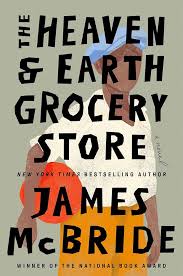Chapter 24: Duck Boy
byChapter 24: Duck Boy begins in a small kitchen where community and food intersect to uncover difficult truths. Sweet potato pie was the lure—everyone on Chicken Hill knew Paper made it best. She gathered Nate, Addie, Rusty, and Fatty at the table, hoping Miggy would also join. Miggy, who worked at Pennhurst, eventually arrived wearing her nurse’s whites, no longer the dazzling oracle seen days before. Her professional demeanor softened upon seeing Nate, though tension lingered between their shared past. As they exchanged memories and pleasantries over slices of warm pie, it became clear this wasn’t just a casual reunion. The purpose was deeper, heavier—Pie was the opener to a conversation about suffering, injustice, and a child lost in the system.
Miggy began cautiously, deflecting direct questions and focusing instead on her own life. She painted Pennhurst not just as an institution but a labyrinth of sorrow—a sprawling complex larger than Chicken Hill itself, filled with dark corners and broken spirits. She described the patients, the neglect, and the cruelty, especially in the lower wards like C‑1. Her firsthand observations were horrifying: adults restrained for weeks, women in straitjackets, and children preyed upon by corrupt staff. One figure stood out in particular—a man called Son of Man, a fellow Lowgod who used charm and intimidation to rule C‑1. He abused his authority and the vulnerable patients under his care. Miggy’s story was not merely about what she had seen but about the deep spiritual cost of witnessing such unchecked power.
As the conversation progressed, she introduced the tale of a white boy, nicknamed the Duck Boy, who quacked and couldn’t speak. Abandoned by his parents and placed in the worst ward, the boy’s trauma worsened under Son of Man’s care. Miggy suspected he had been repeatedly abused. But then, one day, the boy vanished. Pennhurst searched high and low but never found him. Miggy suggested that tunnels—long-forgotten passageways once used to move coal and supplies—might’ve offered the boy an escape. A possible accomplice? A man who delivered hot eggs and coffee every morning, faster than seemed humanly possible. A man who may have used those same tunnels to spirit the boy out, away from pain, and into a new life far from Pennhurst.
Miggy explained how food logistics at the hospital were strange but revealing. Pennhurst could grow vegetables, but it couldn’t manage chickens, so eggs were brought in daily. Four thousand eggs, hot and ready, by six in the morning—delivered by one man to fourteen buildings. The only way this was possible, she argued, was through the tunnels. She hinted this egg man may have helped Duck Boy escape to the railway yard, where sympathetic union workers smuggled him onto a freight train headed for New York. There, it was rumored, he still lived—safe, still quacking, but finally free. The story offered a rare thread of hope, though it came woven with sorrow.
Paper pressed Miggy for more, especially about children like the Duck Boy. Miggy warned of another child, a Black boy recently placed in C‑1, deaf or possibly mute. Rumors suggested he had already been injured and was now vulnerable. Her concern was palpable. She didn’t name names or call for immediate action, but the implication was clear: history might repeat itself unless someone intervened. Nate, deeply affected, studied the makeshift diagram Miggy had drawn from pieces of pie on her plate, representing buildings and tunnels. Her map, vague but symbolically accurate, might be the only guide they’d get. The weight of what they’d heard settled into silence.
The broader context of Miggy’s story speaks to the real-life history of institutions like Pennhurst, which were known for both their scale and their abuses. Reports in the 20th century documented overcrowding, mistreatment, and lack of oversight in similar state-run facilities. The use of underground tunnels, while sounding fictional, echoes infrastructure realities of older campuses built during the Progressive Era. Her story also reflects the unique cultural knowledge of the Lowgods—descendants of Gullah-Geechee people from the Carolinas—who preserved oral traditions and spiritual beliefs rooted in African ancestry. In their worldview, all things connect—eggs to tunnels, suffering to redemption, and the voices of ancestors to acts of resistance.
Miggy ended her tale with a quiet declaration: “Eggs got everything to do with tunnels. Everything got everything to do with everything.” Her words, layered and symbolic, served as a bridge between the mystical and the practical. In a community where official channels failed and silence often protected abusers, stories became roadmaps. And sometimes, pie became a blueprint for escape. The message was received: there was still time to help the next child before he too disappeared into darkness.


